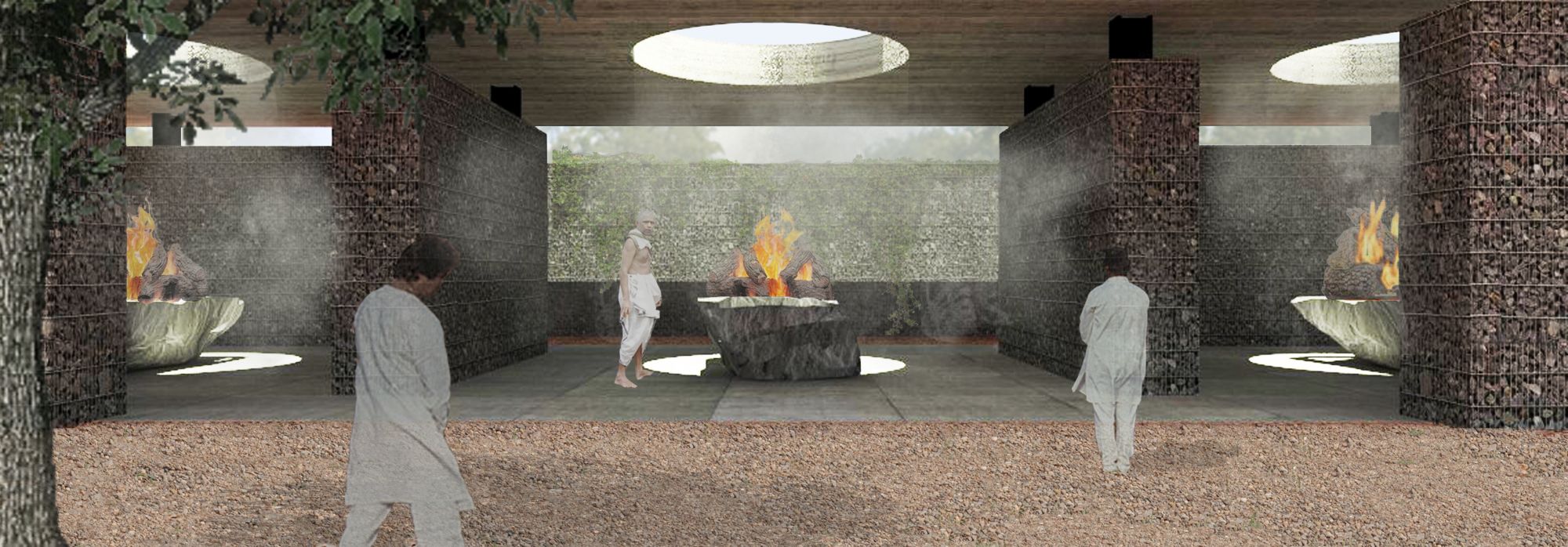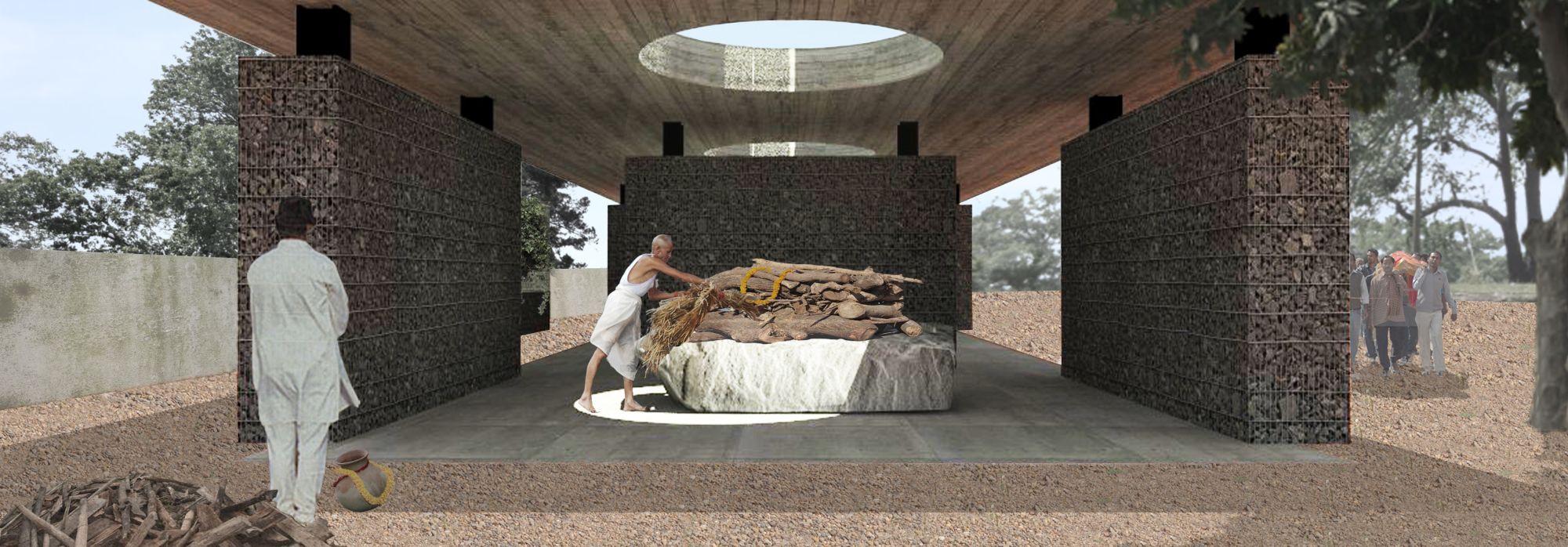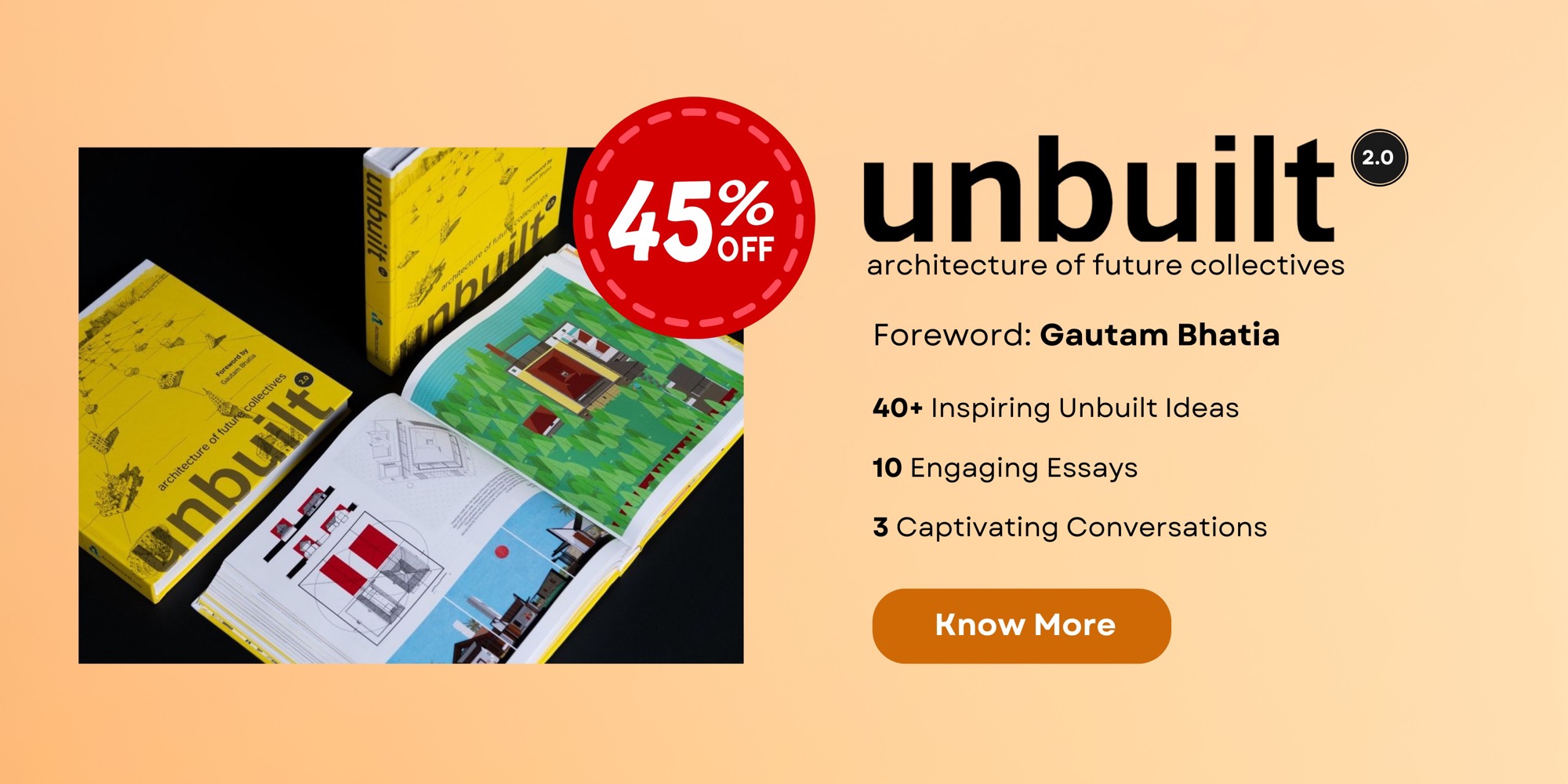
Bhilwara is one amongst the fast growing cities in the Mewar region of Rajasthan. Yet the citizens of this largely Hindu city stay close to their roots and traditional values, especially so when it comes to consecration of the dead. Not yet hit by the space constraints of rapid urbanization, in Bhilwara, the deceased are still burned in a customary fashion, in open air pyres preferably near a water body.
The Bhagavad Gita states that a person attains moksha and is released from the circle of life when his final rites are performed. The intent of the project was to deliver a vehicle for a solemn send off, one that accommodates for local rituals, both culturally and contextually.
The structure blends into the landscape with its minimalistic form. Three funeral pyres are proposed- with each pyre surrounded by three walls, allowing for semi-privacy. Every pyre has a circular cut out in the roof, exposing the space to the elements above. The only two physical elements that make the structure are the walls and the roof; the former giving a sense of enclosure to comfort the families and the latter opening up to the sky to liberate the soul from the circle of life.
Sandstone being locally available, was chosen to be the primary material. The intent was to re-use the waste chips from the local quarries, utilizing and taking advantage of it’s textural quality in building a native and sensitive environment for both- mourning the loss and celebrating the life of the deceased. The making of gabion walls is used on a modern canvas where, where cages are wired together and filled with sandstone chips, resulting in a solemn and heavy aesthetic, helping us to convert of what was waste, into a primary building material. Exposed concrete used on the roof, further enhances the primal nature of the structure.
The primary intent was to achieve a very raw, yet sombre aesthetic, appropriate for a dignified final send off.











